Upper Arlington schools marks 50th anniversary of informal program few locals offer
Kindergarten and first-grade students dance to instrumental music, pretending to rake leaves and falling to the ground to do snow angels on the floor of the dance studio.
The dance class is part of the informal education program being presented to students at Columbus City Schools' Indianola Informal K-8 School.
More:Columbus City Schools launches new WCBE format with fewer NPR shows and more local music
Informal programs are a child-centered curriculum that is offered at fewer than a handful of Franklin County schools: Columbus City's Indianola K-8 and at two Upper Arlington City Schools — Barrington Elementary and Wickliffe Progressive School — where the program is marking its 50th anniversary this year.
“(The informal program is) really focused on being child-centered and child development and their interests and building on that,” said Indianola Informal K-8 Principal Brandy Koeth. “We have all the same standards and assessment requirements as any other public school.”
What is an Informal program?
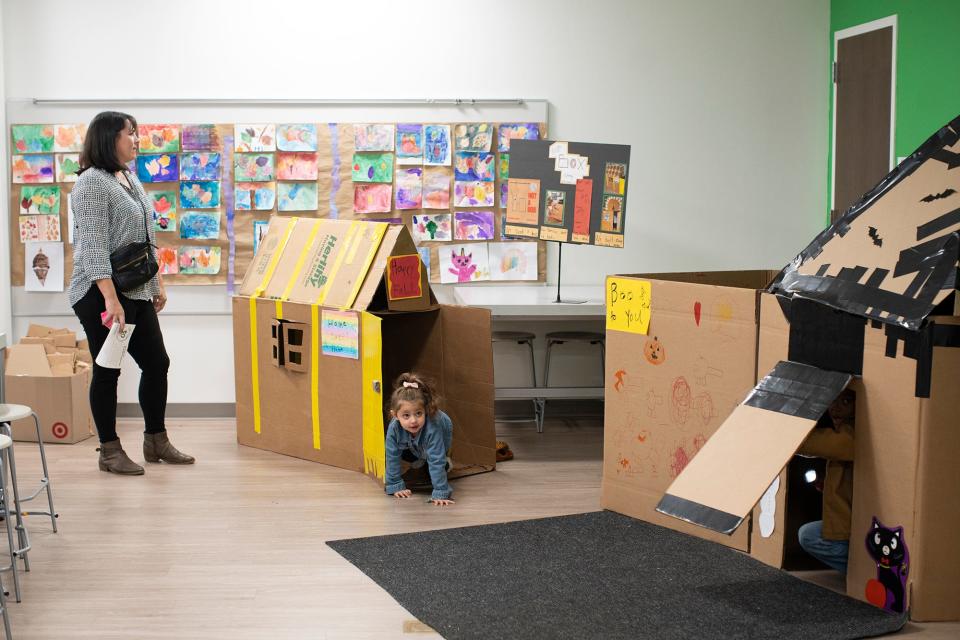
Informal programs, also known as progressive education, have integrated units of study that merge more than one content area together and are designed around a specific theme, such as an animal or a season.
“It could be child-driven, it could be teacher-driven, it could be a combination of both,” said Michelle Barnes, the instructional coach at Indianola Informal.
Students in informal programs are often in multi-age or looped classrooms. Looping in a classroom means that they have the same students and same teacher for two consecutive years. A multi-age classroom has two grades of students together.
“It’s a very intentional choice that we’ve made based on community and having that long-standing relationship with students so that a teacher and a group of students are together for multiple years, which we feel strongly helps foster those relationships,” said Barrington Elementary Principal Carla Wilson.
More:More Columbus students are applying for FAFSA. Could college enrollment be on the rise?
Arts integration is another huge piece of informal education. Indianola's dance teacher doesn't teach the students ballet, but connects dancing to the curriculum.
“It’s really more about movement and expressing yourself, and (the teacher) will incorporate that along with what they are learning in class," Koeth said.
The immersion curriculum, where all academic subjects are taught in a target language, is also a key part of the informal program.
When Fred Burton, an associate professor at Ashland University, taught at Barrington from 1983-1989, he took his combined grades 3-5 class to the Columbus Zoo to study the feet of animals, but the focus of the trip took a detour when they saw construction workers inside a hole.
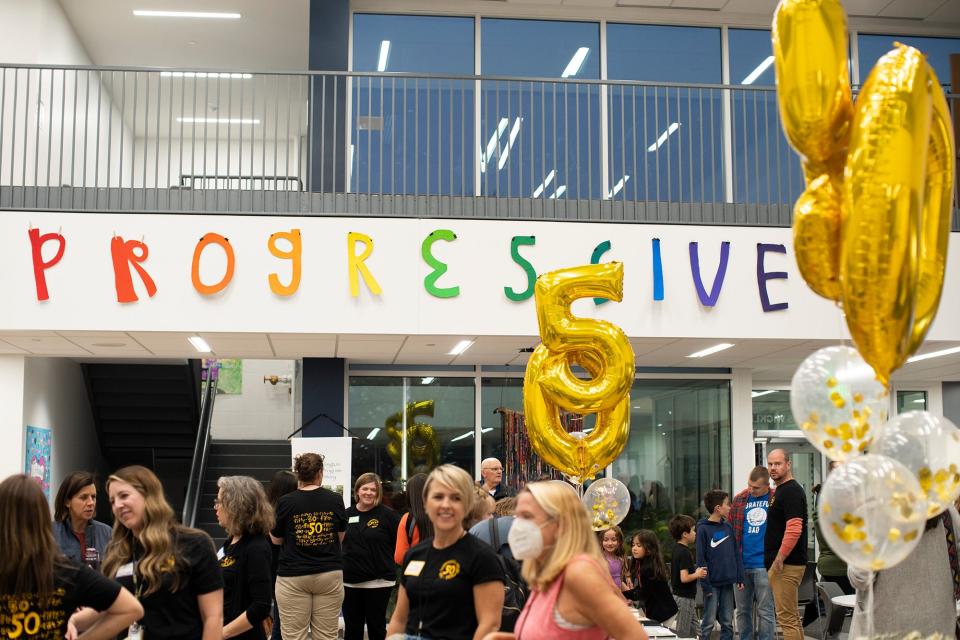
The students ended up talking to the construction workers for about an hour, and when they got back to the classroom they learned what was underneath the streets outside the school using reading, writing, math and science.
“It’s not just something we discover in the curriculum, but it’s something we uncover in the curriculum,” Burton said. “I didn’t have to motivate them; they were totally into it.”
Indianola Informal K-8
Indianola Informal K-8, which has 670 students, started its informal program in 1975, three years after Upper Arlington schools.
Indianola’s classrooms group kindergarten and first grade together, and second and third grade together. Fourth and fifth-grade classrooms are looped. Sixth graders are with one teacher most of the day, and seventh and eighth graders change classrooms for a more specialized curriculum.
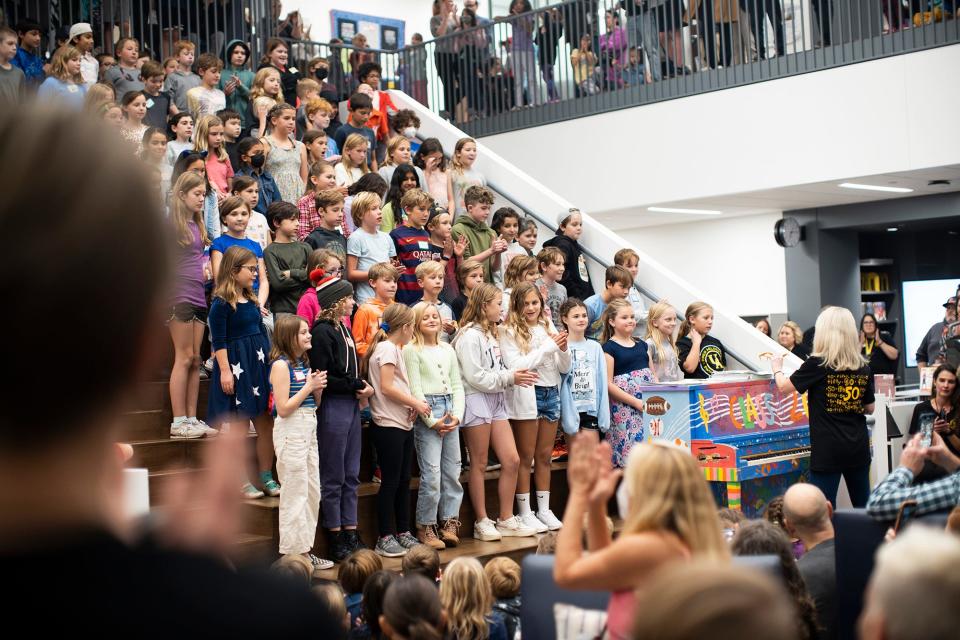
Indianola is a lottery school, meaning everyone in Columbus City Schools has a chance at attending Indianola.
Barnes had three of her four children attend Indianola.
“What I love about it is that they were free to be themselves,” she said. “They were very comfortable coming to school. They were safe coming to school. They didn’t want to miss.”
50th anniversary in Upper Arlington schools
Upper Arlington’s informal program was established in 1972 and was founded by educators, parents and Ohio State University professors.
Barrington Elementary offers both the informal program and contemporary curriculum, while Wickliffe Progressive Elementary only offers the informal program. Approximately 340 students are in Barrington’s informal program and about 440 students are in the contemporary program. Wickliffe has 470 students.
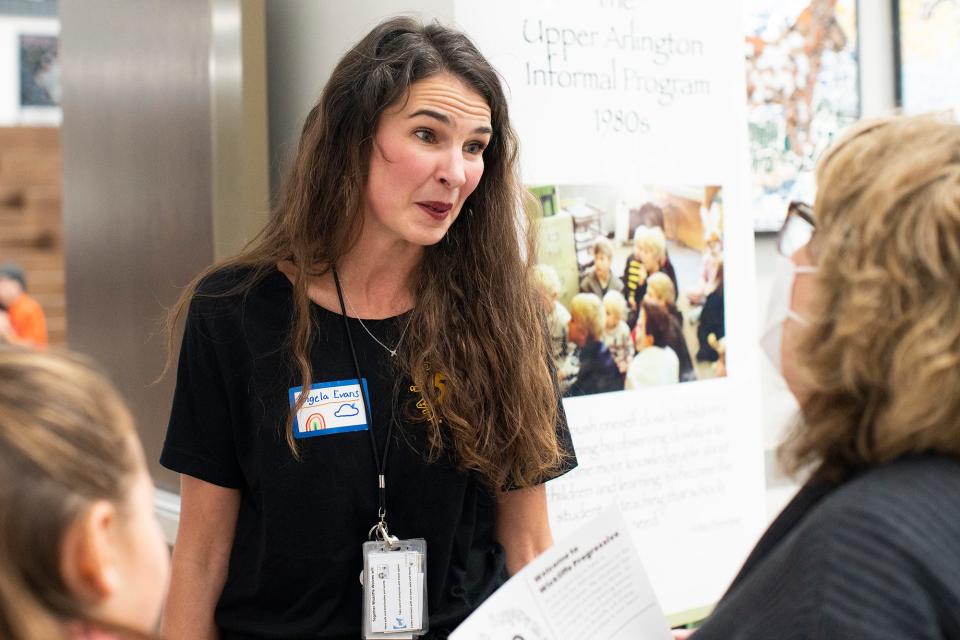
"(Informal education is) honoring their voice and interest," Wickliffe Principal Angela Evans said of students, "and using what their passions are as a point of entry for educating."
More:Reading, math scores decline in Ohio, nation: 5 takeaways from new report
Upper Arlington's informal program has evolved over the years with testing and standardization.
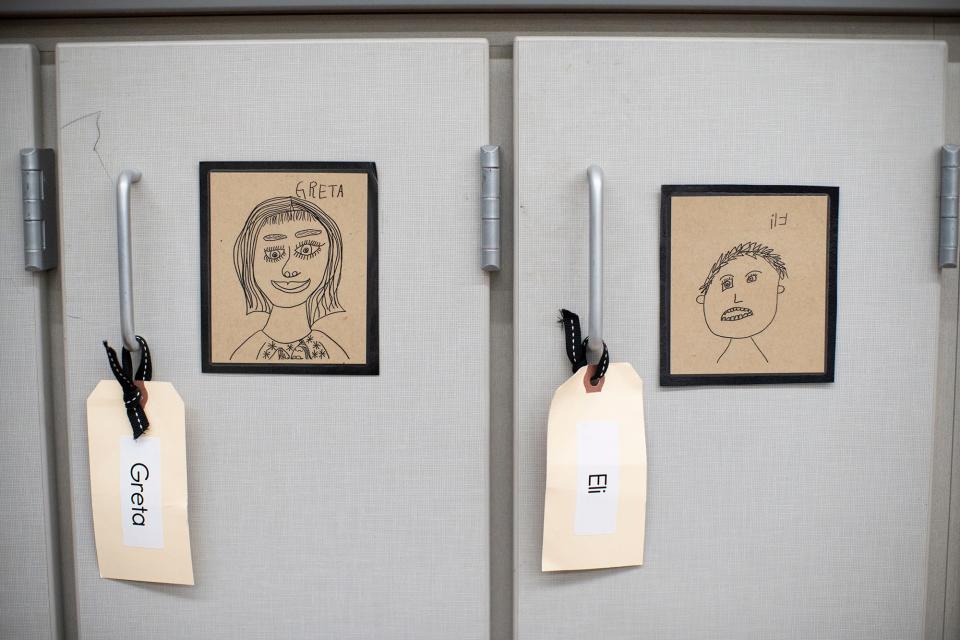
“We knew we couldn’t ignore (testing standardization) and we didn't want to ignore it, so I think what we’ve done is evolve in a way that we are balancing subject-centeredness and child-centeredness better I think over the years,” Burton said.
Both of his children also went through the district's informal program.
“They felt like they had opportunities to make choices, to be creative. They felt like the teachers loved them,” Burton said. “Not just taught them, but actually loved them, and as a parent, I wouldn't want anything more than that.”
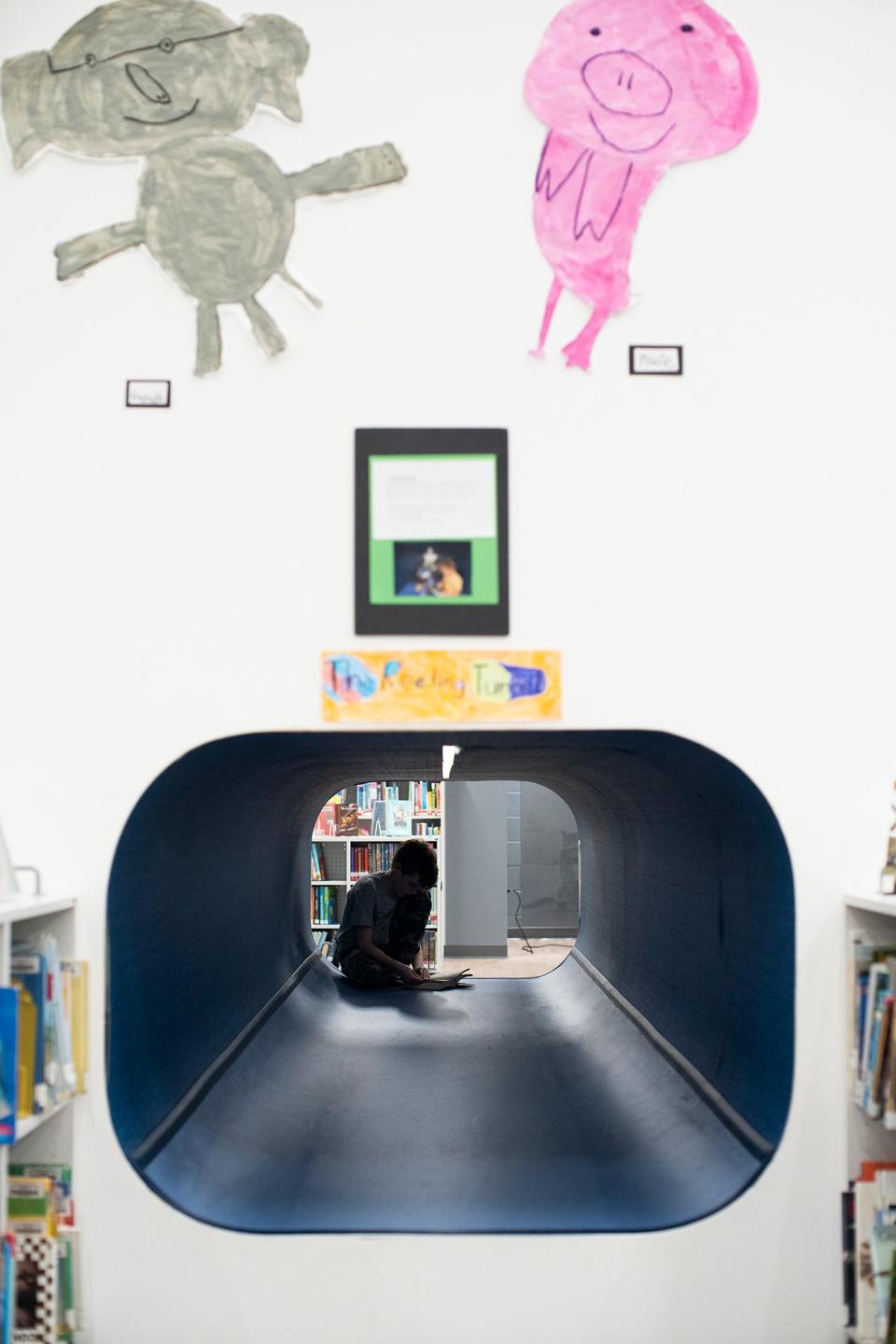
Lindsay James, copresident of Wickliffe Parent Teacher Organization, said her family choose to live in Upper Arlington because of Wickliffe's informal education curriculum.
“I love the community aspect of it and that is fostered and created in the building between the staff and the students, but it also spreads out to our families,” she said. “There’s a lot of collaboration.”
Her fifth-grade daughter and second-grade son enjoy the multi-age classrooms.
“They really loved the opportunity of having peers and friends in their educational cohort that are older, and then they can be mentors to them and then they can have the opportunities to take on that mentoring role when they are that older child next year,” she said.
mhenry@dispatch.com
@megankhenry
This article originally appeared on The Columbus Dispatch: Upper Arlington marks 50th anniversary of informal educational program

